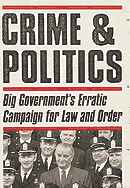
Bookshelf
Race
and the Writing of History: Riddling the Sphinx
By Maghan Keita '72
Oxford University Press, 2000
Despite
increased interest in the role of race in Western culture, scholars
have neglected much of the 19th- and 20th-century work produced
by black intellectuals. Keita examines the controversial legacy
of writing history in America and offers a fresh perspective on
the challenge of building new historiographies and epistemologies.
He is associate professor of history and director of Africana studies
at Villanova University.
The
Art of Innovation
By
Tom Kelley '77
Doubleday,
2001
A
behind-the-scenes look at IDEO, the Silicon Valley-based design
firm that produced cutting-edge products such as the Apple mouse,
Polaroid's I-Zone instant camera, and the Palm Pilot. Using entertaining
anecdotes of the firm's successes and failures, Kelley reveals the
strategies and secrets IDEO uses to turn out hit after hit and provides
the reader with the insights and tools to follow suit. Kelley is
general manager of IDEO.
Human
Trials: Scientists, Investors, and Patients in the Quest for a Cure
By
Susan Quinn '62
Perseus
Publishing, 2001
This
is a fascinating survey of the history of immunology by a writer
whose ability to put complex theories into lay terms is known to
readers of her articles in The New York Times Magazine and Atlantic
Monthly. Autoimmune diseases such as multiple sclerosis are considered
by many doctors more devastating illnesses than brain tumors, as
there is little that can reverse the
diseases.
Dr. Howard Weiner at the Center for Neurological Diseases in Boston
is fighting for medication that will alleviate symptoms, and Quinn
follows him as he experiments with cures for his patients. Quinn
lives in Brookline, Massachusetts, with her husband, Dr. Daniel
H. Jacobs '59.
In
Our Own Best Interest: How Defending Human Rights Benefits All Americans
By
William F. Schulz '71
Beacon
Press, 2001
Today, says Schulz, the U.S. is becoming less active in promoting universal human rights. He believes that our government should support human rights in more concrete and visible ways, and says that evenhanded enforcement is consistent with the highest American values and in our best interests. Schulz is executive director of Amnesty International USA and former president of the Unitarian/Universalist Association of Congregations.
 Crime
and Politics: Big Government's Erratic Campaign for Law and Order
Crime
and Politics: Big Government's Erratic Campaign for Law and Order
By
Ted Gest '68
Oxford
University Press, 2001
This
is the inside story of how crime policy is formulated inside the
Washington beltway and state capitols, why we've had endless cycles
of ineffective federal legislation, and where reforms might lead
us in the future. Gest has two decades of experience covering
crime policy and the Supreme Court for U.S. News and World Report
and has directed the program on crime policy and the news media
at the Jerry Lee Center of Criminology at the University of Pennsylvania.
The
Ties That Divide: Ethnic Politics, Foreign Policy, & International
Conflict
By
Stephen M. Saideman '88
Columbia
University Press, 2001
Ethnic
conflicts have created crises within NATO and between NATO and
Russia, produced massive flows of refugees, destabilized neighboring
countries, and increased the threat of nuclear war between Pakistan
and India. Interventions have cost the U.S., the United Nations,
and other actors billions of dollars. Saideman argues that domestic
political competition compels countries to support the side of
an ethnic conflict with which constituents share ethical ties.
He and his wife, Katherine G. Saideman '86, live in Burke, Virginia.
The
Ute Indians of Utah, Colorado, and New Mexico
By
Virginia McConnell Simmons '49
University
Press of Colorado, 2000
With
55 archival photographs and eight maps, this book reveals the
existence of Indian farms and little-known agencies, as the author
chronicles the lives of the Utes as nomads, horsemen, warriors,
raiders, traders, and modern citizens coping with today's problems.
Simmons is the award-winning author of 14 books and an editor
for the Colorado Historical Society and Pruett Publishing Company.